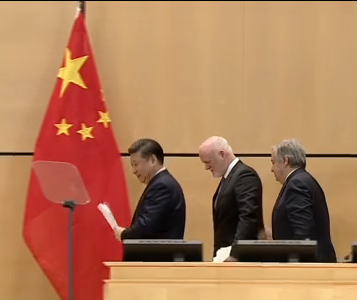The results of the review of China by the UN Committee on the Elimination of Racial Discrimination, on 10 and 13 August 2018, are in. And they don’t paint a pretty picture.
The UN expert group released on Thursday a concise but comprehensive document summarising their findings on discrimination in the country, and making recommendations for action by the Chinese government.
Key areas of concern highlighted by the UN experts include reports of:
- widespread torture, ill-treatment, arbitrary and incommunicado detention of human rights defenders, peaceful protesters and ethnic minority groups
- mass detention and ‘re-education’ of Muslim minority groups
- significant restrictions on the ability of independent civil society organisations to register and operate
While some of the recommendations are somewhat perfunctory, such as the need for legal definitions of discrimination and provision of more accurate and useful statistical data, ISHR Asia advocate Sarah M. Brooks says that others respond clearly to gaps that Chinese human rights defenders and other rights groups have been concerned about.
The report, for example, urges China to adopt comprehensive legislation prohibiting discrimination in employment – a request long overdue in the eyes of women’s, LGBTI and disability rights groups, among others. Drawing on information provided by ISHR, it highlights the significant decline of independent civil society in the country due to the restrictive and invasive Overseas NGO Management Law and Charity Law, and calls for transparency in registration processes. And it draws a contrast between China’s stated focus on the protection of economic, social and cultural rights on the one hand, and the effective exclusion of ethnic minority communities from participation in policies for sustainable land management and access to education and health services on the other.
The Committee’s hardest-hitting recommendations, rightly, focus on Chinese government policies in the Xinjiang Uyghur Autonomous Region.
Acknowledging that the official government position was one of blanket denial of detention and ‘re-education’ camps, the experts urged an immediate halt to extra-legal detentions, release and redress for those currently in re-education centres, documentation and accountability for racial profiling of Muslims, and a reversal of the effective travel ban on Uyghurs and other ethnic minorities.
‘The Committee isn’t buying the laughable line that these camps don’t exist. And their questions – including the demand for independent investigations and access – are not just intended for the Chinese government, but for a global audience,’ says Brooks.
‘How long will the international community, and individual governments, stay silent on this issue, despite mounting evidence of widespread and systematic violations?’ she asked.
The experts’ report concluded with a series of requests for more information, to be provided within a year, about the steps China is taking to act on key recommendations – those related to suppression of independent civil society and to the violations of Tibetans and Uyghurs. Throughout the document, the Committee also makes clear that the government’s denial of the existence of internment camps during the review was not backed up by sufficient information.
Says Brooks, ‘The dozens of pages of material provided by the government – giant stacks in front of each member – simply did not address the core issues.’
‘One of the most important conclusions of this report is that all the indicators for massive violations of minority rights are there. The world needs more credible information, and that means independent access and monitoring – not platitudes from the Chinese Communist Party.’
In the weeks since the review, social media reports have noted ongoing surveillance of tourists and journalists in Xinjiang’s capital, Urumqi. Diplomats are, almost without exception, denied access to the region. UN experts’ requests to visit China, including Xinjiang, are regularly denied or simply receive no response. As raised in the ISHR submission to the Committtee, activists continue to face serious risks and threats, to themselves and their families, for providing information to the UN.
Further information:
For more information, please contact Sarah M. Brooks at s.brooks[at]ishr.ch, or follow the issue at @sarahmcneer in English, or @ISHR_chinese in Mandarin.




